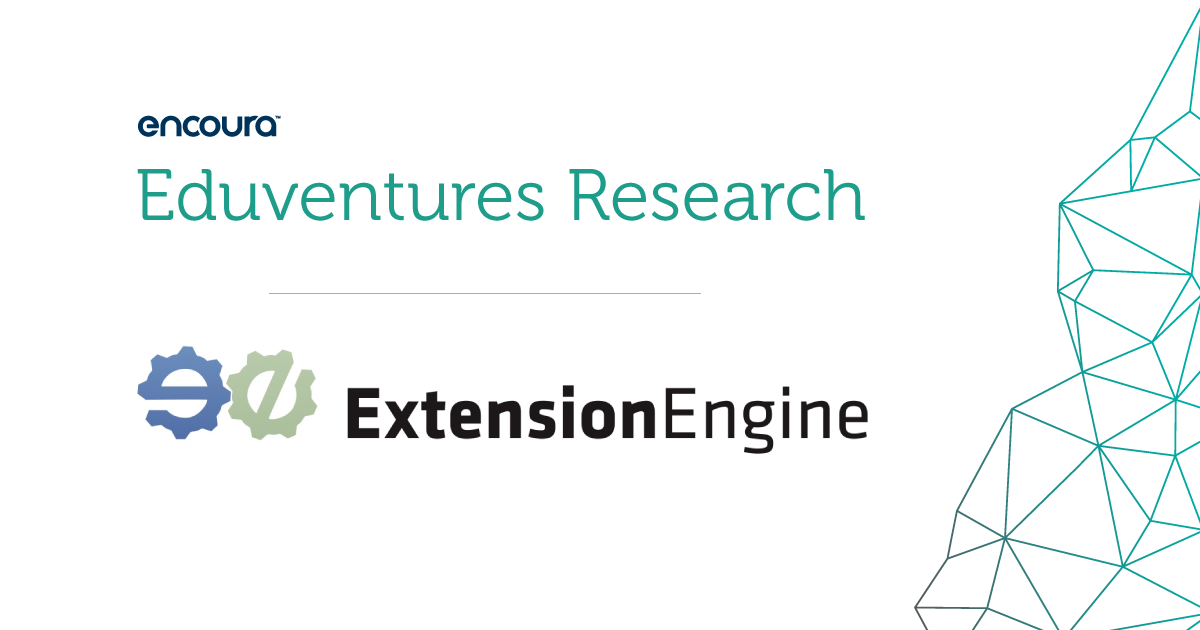
This week, I had the pleasure of conducting a webinar with Howard Lurie, Principal Analyst, Adult and Online Learning at Eduventures. The topic was Building Online Programs Without an OPM.
Conventional OPMs, estimated to be used by about 15-20% of universities in the U.S., are a popular option to outsource online degree program development, management, and marketing in return for a share of the revenue. In the webinar, we discussed the pros and cons of this model and also introduced an alternative model: professional services firms (e.g., ExtensionEngine).
Rather than summarizing the content of the webinar (you can watch the replay here), I want to focus on some of the audience input. For background, because we believe in high-end, engaging, and interactive online learning, we try to make our webinars, intended to be educational, follow the same standards. So we made it lively, with audience participation, online chats, two Q&A sessions, and polling. The audience (which consisted of deans, associate provost for online learning, CIO, faculty members, and more) was really into it and provided interesting insights.
Let’s look at data from the polls. With the important caveat that these were not scientific polls and the audience was likely biased based on their selecting to participate in a webinar on this topic, the results are still insightful.
We started out by asking what their top challenges were in developing successful online learning. It was multiple choice and there were 61 responses. As you would guess, faculty concern was the number one challenge. Strategy and resources were number two and three.
In the webinar, we discussed how outsourced firms can help in these areas and gave some input and advice. I mentioned specifically that we are surprised at how often we hear universities are looking to create online programs but don't have a strong business plan. We provide two resources that can help with this — a white paper on achieving full potential and a white paper on financial models for online programs.
We then went through some of the options for creating online learning and after discussing the pros and cons of the OPM and Professional Services models, the results (56 responses) were interesting. What is really one of the newest models, using a professional services firm on a fee-for-service basis, was the highest rated by quite a bit.
Now again, it is really important to remember that this was a small sample, with selection bias, and the audience was just exposed to information from Eduventures on the pros and cons of OPM and Professional Services models, so this is likely not representative of universities as a whole. But what it may indicate is that there is a growing interest in this model and it is worth exploring.
Which, of course, we agree with. While an OPM with revenue share has been the “go-to” option for outsourcing in the past, professional services firms with a fee-for-service model is the new option. It offers the advantages of providing a university higher revenues and profits, greater control over quality and student experience, and complements internal teams, helping universities build internal competencies and expertise. For a great example, see an article in Inside Higher Ed called “Better Revenue Model” that profiles Notre Dame’s new Online Master's Degree in Data Science.
I also thought some of the comments and questions were interesting and gives insight into the struggles that many universities are facing — and that companies like ExtensionEngine must help them solve:
- “Universities are inherently bureaucratic, and academics often don’t have a revenue mindset. What advice do you have for the business manager (me) to manage this?”
- “How does the Professional Service model provide differentiation and pedagogy driven learning in comparison to OPM?” (see this article in eCampusNews)
- “As more programs move to OPM/Alt OPM, will it become increasingly difficult to crack the marketing code and have your program show up in search results without using an outside service provider of some sort?”
- “How do you get Faculty to use tech or advance in digital learning when they are not digital natives nor have ever been in an online class?”
- “Do you think another option might be to hire a professional services firm that would train internal teams during transitions? In other words — fee-for-service to get up and running, then train internal resources in the meantime for handover? For sustainability purposes with eventual increase in revenue?”
We could have spent an hour on each of these and we probably will. Subscribe to our blog for more posts and webinars on these topics.
The conversation was lively on the webinar — let’s keep it going on twitter @extensionengine with the hashtag #AlternativeToOPM. Or set up a phone call with our Principal Learning Strategist for Higher Education, Dr. Scott Moore, by sending an email to scott@extensionengine.com.


